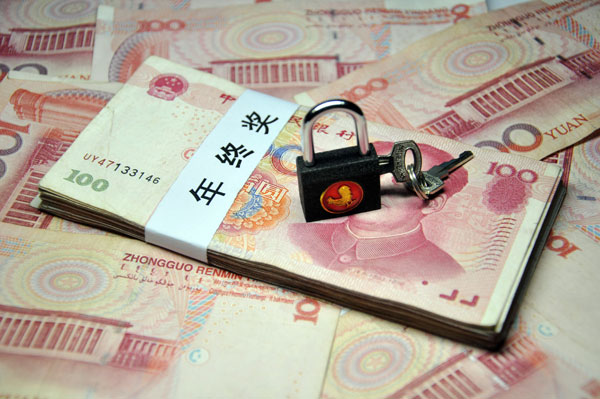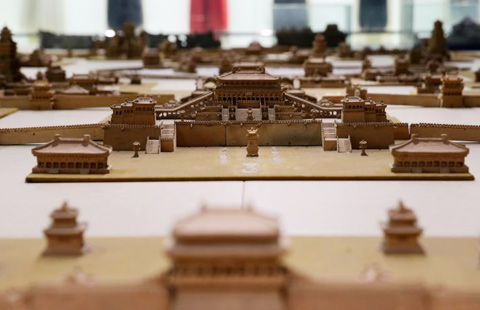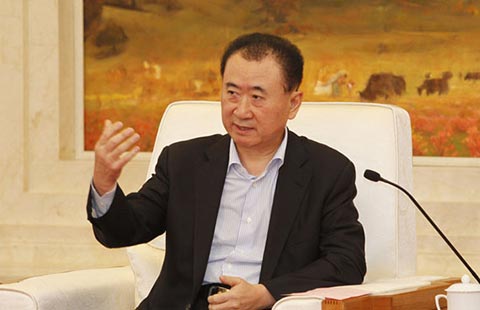Wealthy seek to avoid a taxing inheritance levy
By Wu Yiyao in Shanghai (China Daily) Updated: 2013-01-28 08:12An insurance policy in Shenzhen, with assured payout of more than 100 million yuan ($16 million), which has been widely reported as a tax avoidance scheme, has alerted wealthy people who fear that some first-tier cities will impose an inheritance tax in the near future, said Liu.
 |
|
Many Chinese high-net-worth individuals believe sooner or later the central government will impose an inheritance tax. As a result, some people are beginning to consider whether they can use insurance policies to avoid it despite the fact it has not yet been introduced. Lu Jianshe / For China Daily |
A private enterprise owner in Shenzhen bought the insurance policy just after Zhang Siping, a member of the Standing Committee of Shenzhen Municipal People's Congress, local legislature, said in a late November forum that if China decides to introduce an inheritance tax, Shenzhen could be chosen for a pilot project, reported 21st Century Business Herald.
"There may be some misunderstanding about this case because, as far as I know, the majority of the assured sum of the 100 million yuan would go to accident insurance. The portfolio of the insurance policy does not look like it is designed to avoid a tax that is not currently in existence," said Wei Chunhua, an insurance agent in Shenzhen.
Wei said he has not observed a surge in numbers of people buying insurance policies with large assured sums or high premiums.
A source with the administration of local taxation in Shenzhen municipality said the administration had not received any notification about launching an inheritance tax by Jan 14.
Wei said that to achieve high sales, some insurance agents might use "tax avoidance" as a pitch to recommend high-premium and high-assured-sum policies to the wealthy.
"While profits from life insurance as personal income are not taxable, it is not necessary to buy high-premium insurance when tax is the only concern because it may impair cash liquidity," said Zhang Ruilan, a wealth manager with Shanghai Jinrui Investment Consultancy Co.
High-net-worth individuals (defined as individuals with more than $1 million in investable assets) are often quite sensitive to changes in tax policies. Inheritance tax, once imposed, may affect people's decisions when designing a wealth management portfolio, said Zhang.
The number of Chinese high-net-worth individuals is expected to grow about 20 percent annually from 2012 to 2015, reaching around 2 million. The number of ultra-high-net-worth individuals (individuals with investable assets of more than 100 million yuan) will grow to 130,000, according to a recent report jointly released by China Minsheng Banking Corp and McKinsey & Co.
It is advisable for people to buy insurance to hedge the risks that may impair one's financial situation and living standards. It is not necessary to regard insurance products as the only tool to avoid tax, said Zhang.
There is much work for the authorities to do before inheritance tax can be implemented, said Zhang. The evaluation and registration system of inheritance has not yet been completed. I think in future any inheritance will be taxed as a means to adjust income gaps. It is only a matter of time," said Zhang.
Some wealthy people are considering acting proactively to any possible levy of inheritance tax and have made plans including buying property under the name of their offspring.
"It is better to buy a house for my son when neither estate nor inheritance is taxed", said Xu Cheng, a 54-year-old textile factory owner in Hangzhou, Zhejiang province.
Chang Qing, a wholesaler of alloy interior parts, who is also a high-net-worth individual, said he is not considering buying a large-premium insurance policy to avoid tax.
"I'd rather use the money to expand my business or invest in the stock market and other channels when my wealth accumulates," said Chang.
wuyiyao@chinadaily.com.cn
- AI to spur R&D in service robot industry
- China hasn't scrapped individual forex purchase cap: Official
- Digital China Group signs cooperation agreement with Oracle
- China-Russia Internet Media Forum to open in Guangzhou
- Cross-border capital outflows to remain stable: Official
- Chateau Lafite Rothschild announces partnership with JD.com
- Brick miniature of ancient palace on display in Xi'an
- Q3 results bolster China's economic transition


















